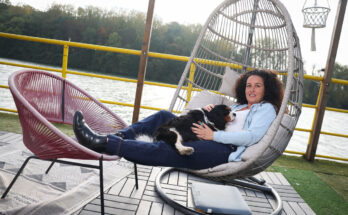The US plan for Ukraine shakes world geopolitics and generates a state of maximum concern in Kiev and other European capitals. European leaders are urgently seeking to coordinate their response to a diplomatic initiative in which they were not consulted and which, in its current form, entails deeply disturbing elements for Kiev and the EU. Meanwhile, the United States is exerting strong pressure for its approach to be accepted, according to sources who spoke at a meeting in Kiev on Friday where the issue was addressed by this newspaper.
To this end, allied leaders will hold an extraordinary meeting on Saturday afternoon on the sidelines of the G20 summit, which began in Johannesburg under the leadership of the South African presidency. Ukraine’s non-EU allies and non-European countries, including the United Kingdom, Canada, Japan and Australia, were also invited to the event organized by the President of the European Council, António Costa.
The United States is now putting pressure not only on Ukraine to accept the peace plan outlined by the Kremlin and the White House, but also on Europe to help lead Ukrainian President Volodymyr Zelensky onto the path laid out by Trump. On Friday, US Army Secretary Daniel Driscoll, tasked with presenting the Russian-American proposal to Zelensky in Kiev, told a group of European ambassadors and representatives that Ukraine must accept the plan, according to two people at the meeting. “His message was that this plan is the best that Ukraine will have and that it will be better to accept it soon,” complains one of the European representatives, speaking on condition of anonymity on a very sensitive issue.
At a meeting held on Friday evening in the Ukrainian capital at the residence of the American chargé d’affaires Julie Davies, Driscoll stressed that the situation in Kiev is “terrible” and that, according to the same sources, the time has come to sign the end of the war.
The American also rejected the Europeans’ attempts to enter the negotiations. Even his arguments that Ukraine’s present and future security are part of Europe’s security architecture. “The meeting was very bad. We left with a very bad impression. From the arguments that Washington uses, it is clear that it bought Putin’s arguments,” says an ambassador present at Driscoll’s conversations.
Several ambassadors put on the table the European proposal to establish “security guarantees” for Ukraine so that Russia does not repeat its aggression. This is a key point for Kiev which Driscoll assured will be part of the plan and will be discussed in the coming days. The Europeans, however, believe that, with the drafting of the Russian-American plan, these “peace guarantees” could be significantly weakened. They also insist that the idea on the table of sending European troops as guarantors to Ukraine will be difficult in this plan prepared by Washington.
This is the landscape Kiev and the Europeans are facing. Top European leaders spoke with Zelensky on Friday to begin outlining a coordinated response with Kiev. The Ukrainian leader argued in a speech that his country is facing one of the most difficult moments in its history, faced with a terrible dilemma: a plan that presupposes, according to his definition, the loss of “dignity” or a refusal that risks breaking ties and generating hostility with a fundamental ally like Washington.
“We spoke with Zelensky. We discussed the current situation and we are clear that nothing should be decided on Ukraine without Ukraine,” European Commission President Ursula von der Leyen and Costa said in a joint message. The Ukrainian president, for his part, also had a joint telephone conversation with French President Emmanuel Macron, German Chancellor Friedrich Merz and British Prime Minister Keir Starmer.
Starmer, present in Johannesburg, expressed words in a statement that give clues as to what the European attempt could be: “We will debate the current proposal and, in support of President Trump’s peace initiative, we will analyze how we can strengthen this plan for the next phase of negotiations.” It is clear that neither Ukraine nor Europe can afford to openly reject the plan and that the inevitable strategy is to seek improvements to what has been concocted without consulting them.
Trump gave Zelenskyj a week to respond to the plan with a gesture that smacks of an ultimatum. Neither Trump nor Russian President Vladimir Putin are present at the Johannesburg summit, characterized by numerous notable absences: the leaders of China, Xi Jinping, and Argentina, Javier Milei, and the Mexican president, Claudia Sheinbaum, will also be missing.
The genesis of the Trump plan and the simultaneous absence of relevant leaders in Johannesburg emerge as an emblem of a world governed in an increasingly rigid way by dynamics of force and bilateral relations.



